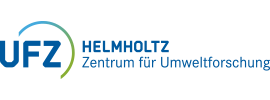DR. Susanne Dunker
Helmholtz-Zentrum für Umweltforschung, Deutsches Zentrum für integrative Biodiversitätsforschung
Good water and air quality as well as pollination are of high relevance to our daily life and are linked to microscopic small organisms or particles (phytoplankton organisms and pollen). For high throughput air and water quality, as well as pollination assessment, a worldwide unique cytometer configuration allows to measure several thousands of microscopic images in short time of seconds to minutes. In combination with deep learning technologies we aim to develop a pioneering new technology of automated high throughput species recognition. The achievement of this ambitious vision is only possible with interdisciplinary work and the strong support by many cooperation partners.
Besides the establishment of automated species recognition, we already use imaging flow cytometry in trait-based physiological experiments to investigate coexistence and resilience mechanisms of phytoplankton organisms.
Publications
The potential of multispectral imaging flow cytometry for environmental monitoring
Dunker S, Boyd M, Durka W, Erler S, Harpole W, Henning S, Herzschuh U, Hornick T, Knight T, Lips S, Mäder P, Švara E, Mozarowski S, Rakosy D, Römermann C, Schmitt‐Jansen M, Stoof‐Leichsenring K, Stratmann F, Treudler R, Virtanen R, Wendt‐Potthoff K, Wilhelm C - Cytometry Part A - 2022
Imaging Flow Cytometry for Phylogenetic and MorphologicallyBased Functional Group Clustering of a Natural Phytoplankton Community over 1 Year in an Urban Pond
Dunker S - Cytometry Part A - 2020
Pollen analysis using multispectral imaging flow cytometry and deep learning
Dunker S, Motivans E, Rakosy D, Boho D, Mäder P, Hornick T, Knight T - New Phytologist - 2020
Hidden Secrets Behind Dots: Improved Phytoplankton Taxonomic Resolution Using High‐Throughput Imaging Flow Cytometry
Dunker S - Cytometry Part A - 2019
